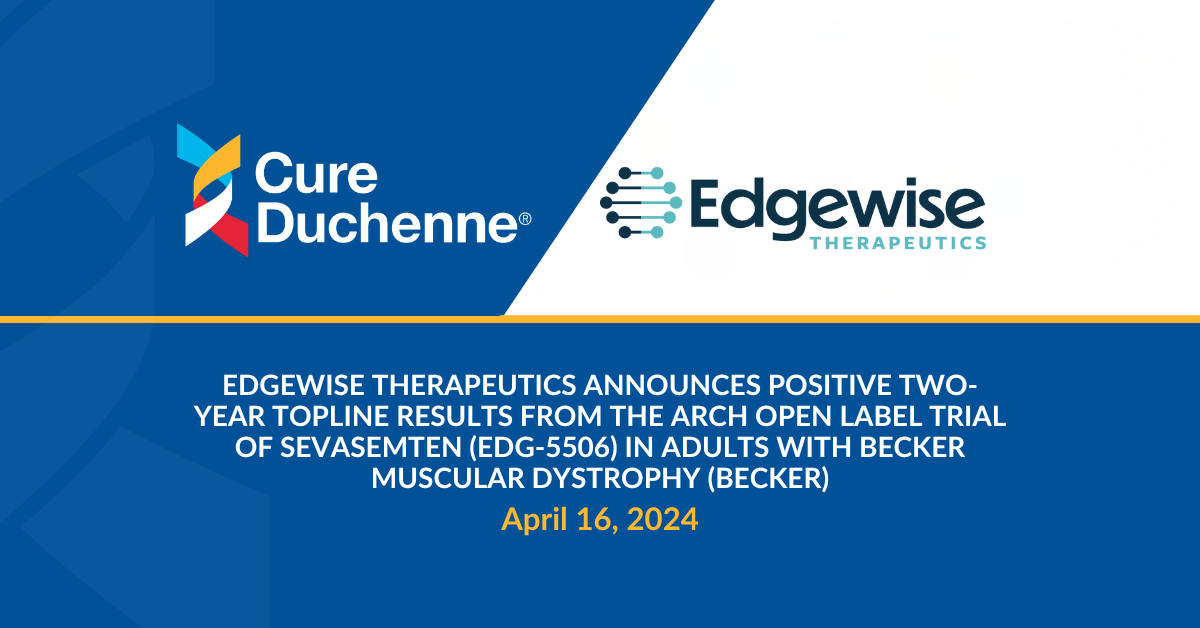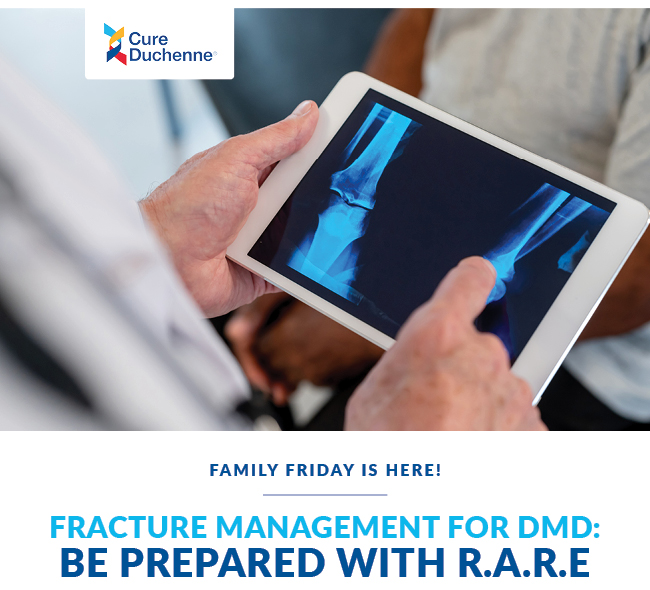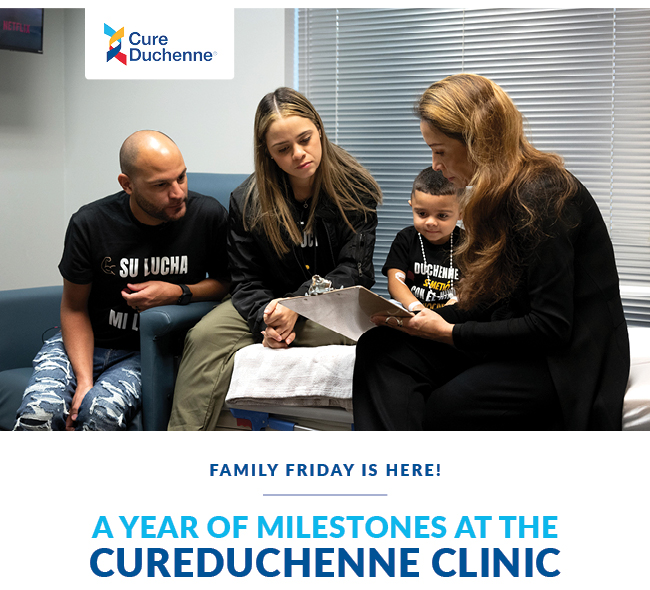Prosensa Provides Update on Drisapersen
Re-dosing plans are underway and 96-week data from an open-label extension study of drisapersen for the treatment of DMD presented at the American Academy of Neurology (AAN)
Leiden, The Netherlands, May 1, 2014(GLOBE NEWSWIRE) — Prosensa Holding N.V. (NASDAQ: RNA) the Dutch biopharmaceutical company focusing on rare diseases with a high unmet medical need, yesterday provided the data analysis of its second open-label extension study (DEMAND IV/DMD114349) of drisapersen in boys with Duchenne Muscular Dystrophy (DMD) during the 66th American Academy of Neurology (AAN) Annual Meeting in Philadelphia, PA. The Company also provided an update on the drisapersen clinical program earlier this week in a letter sent to patient group representatives and clinical investigators and will present a corporate update during an investor briefing on May 1 (webcast here).
Following positive feedback from patients and investigators regarding the willingness and desire of patients to go back on drisapersen and encouraging analyses of its clinical trial data, Prosensa has confirmed that it will re-dose an initial cohort of boys in the third quarter of 2014. The Company has made significant progress in the transition of the program from its former partner, GSK, and expects to communicate on a regulatory path forward for drisapersen before the end of June.
In a poster and presentation onWednesday, April 30at the AAN, Dr.Nathalie Goemans, Head of theNeuromuscular Reference Center for Childrenat the University Hospitals Leuven (UHL) inBelgiumand one of the key investigators in various drisapersen studies confirmed the earlier preliminary analysis of the results of DEMAND IV/DMD114349, which include data from 96 weeks of continuous drisapersen treatment.
“We see very positive signs of the ability of drisapersen to improve the walking ability of boys with DMD. In this extension study, patients who entered the study with a less advanced stage of the disease either improved or experienced less decline in mobility with two-year continuous drisapersen therapy, and these data suggest a treatment difference from those initially on placebo,” reported Dr. Goemans.
The poster (online here) included detailed data up to Week 48 (total of 96 weeks of treatment) from the second open-label extension study of drisapersen in 113 boys with DMD (DEMAND IV), who had previously completed a 48-week, double-blind, placebo-controlled treatment phase in one of two feeder studies (DEMAND II/DMD114117 and DEMAND III/DMD114044). In the six minute walk test (6MWT), boys from the DEMAND II study declined by only 5 meters over 96 weeks on continuous drisapersen (6mg/kg/week) compared with 57 meters in boys who had placebo/delayed treatment. Furthermore, boys of 7 years or younger in DEMAND IV improved from their baseline 6MWT by 8 meters with continuous drisapersen treatment compared with a 29 meter decline for patients in the placebo/delayed treatment arm. The extension study was designed to monitor the long-term safety and efficacy of drisapersen over the course of two years at more than 50 sites in 24 countries.
“These data support our hypothesis that treating earlier in the disease and treating for a longer duration confers a treatment benefit for boys with DMD. Early intervention is a potentially crucial component to improving disease outcome,” said Dr.Giles Campion, Chief Medical Officer of Prosensa.
In a letter to all participating investigators and patient groups sent earlier this week, Prosensa confirmed it is on track with its re-dosing plans, which will take a staged approach. Dr.Nathalie Goemans(UHL,Belgium) and Dr.Craig McDonald(UC Davis,Sacramento, USA), who will be participating at an investor briefing onMay 1, will be amongst investigators working with Prosensa to undertake re-dosing protocols with drisapersen. The first wave of re-dosing in the third quarter will focus on sites inNorth AmericaandEurope. Patients inNorth Americawill be re-dosed under existing extension protocols and patients inEuropewill either participate in a new treatment protocol or via an appropriate expanded access program. “We realize that this has been an incredibly difficult period for the boys and their families as they eagerly await any updates. We are working with all key stakeholders as diligently and quickly as possible to provide access to drisapersen and to determine a path forward” confirmed Dr. Campion.
“Prosensa is dedicated to enabling long term patient access to drisapersen and its follow-on products as novel treatments for DMD. We are determined to accomplish this as soon as possible, as we know time is not on patients’ side” said Hans Schikan, Prosensa’s Chief Executive Officer. “We have been following the recent communication in the DMD community and are encouraged by the apparent regulatory flexibility and positivity shown with respect to potential pathways for investigational products for the treatment of DMD, especially given the very urgent and unmet medical need of boys with this debilitating and life-shortening disease. We are heartened by theFDA’scommitment to DMD and its willingness to work closely with all key stakeholders, and to consider amenable approaches to expedite the availability of treatment options for DMD.”
About drisapersen and the clinical development program
Drisapersen, (previously GSK2402968/PRO051), an antisense oligonucleotide which induces exon skipping of exon 51, is currently in-late stage development for DMD. Drisapersen has orphan drug status in the EU, US,AustraliaandJapan. InJune 2013, drisapersen was granted Breakthrough Therapy designation by theUS Food and Drug Administration.
The overall drisapersen clinical program comprises three double-blind, placebo-controlled studies (DEMAND II, DEMAND V and DEMAND III) and two long term open-label extension studies (DMD114673 and DEMAND IV).
About DMD
Duchenne Muscular Dystrophy (DMD) is a severely debilitating childhood neuromuscular disease that affects up to 1 in 3,500 live male births. This rare disease is caused by mutations in the dystrophin gene, resulting in the absence or defect of the dystrophin protein. Patients suffer from progressive loss of muscle function, often making them use a wheelchair before the age of 12. Respiratory and cardiac muscle can also be affected by the disease. Few patients survive the age of 30.
About exon skipping
The dystrophin gene is the largest gene in the body, consisting of 79 exons. Exons are small sequences of genetic code which lead to the manufacture of sections of protein. In DMD, when certain exons are mutated/deleted, the RNA cannot read the genetic code past the fault. This prevents the rest of the exons being read, resulting in a non-functional dystrophin protein and the severe symptoms of DMD.
RNA-based therapeutics, specifically antisense oligonucleotides inducing exon skipping, are currently in development for DMD. This technology uses synthetic antisense oligonucleotides to skip an exon next to a deletion and thereby correct the reading frame, enabling the production of a novel dystrophin protein. Up to 13% of boys with DMD have dystrophin gene mutation/deletions amenable to an exon 51 skip.
About Prosensa Holding N.V.
Prosensa (NASDAQ: RNA) is a Dutch biotechnology company engaged in the discovery and development of RNA-modulating therapeutics for the treatment of genetic disorders. Its primary focus is on rare neuromuscular and neurodegenerative disorders with a large unmet medical need, including Duchenne muscular dystrophy, myotonic dystrophy and Huntington’s disease.
Forward Looking Statements
This press release contains certain forward-looking statements. All statements, other than statements of historical facts, contained in this press release, including statements regarding our strategy, future operations, future financial position, future revenues, projected costs, prospects, plans and objectives of management, are forward-looking statements. The words “anticipate,” “believe,” “estimate,” “expect,” “intend,” “may,” “plan,” “predict,” “project,” “target,” “potential,” “will,” “would,” “could,” “should,” “continue,” and similar expressions are intended to identify forward-looking statements, although not all forward-looking statements contain these identifying words. Forward-looking statements in this press release include statements around our exon -skipping drug candidates. Actual results may differ materially from those projected or implied in such forward-looking statements. Such forward-looking information involves risks and uncertainties that could significantly affect expected results. These risks and uncertainties are discussed in the Company’sSECfilings, including, but not limited to, the Company’s Form 6-K containing this press release and certain sections of the Company’s annual report on Form 20-F. In addition, any forward-looking statements represent our views only as of today and should not be relied upon as representing our views as of any subsequent date. While we may elect to update these forward-looking statements at some point in the future, we specifically disclaim any obligation to do so, even if our views change.
CONTACT: Prosensa Holding N.V.
Celia Economides, Senior Director IR & Corporate Communications
Phone: +1 917 941 9059
Email: c.economides@prosensa.nl




